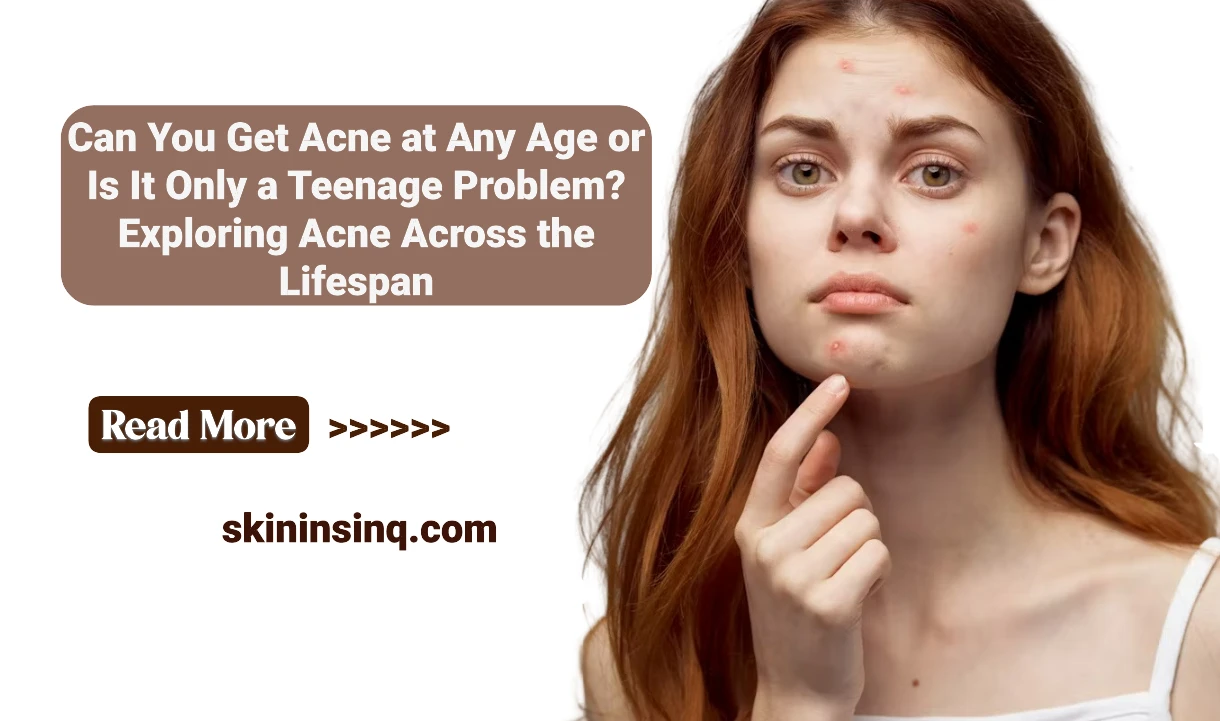Can You Get Acne at Any Age or Is It Only a Teenage Problem? Exploring Acne Across the Lifespan
Can You Get Acne at Any Age or Is It Only a Teenage Problem? Exploring Acne Across the Lifespan
Acne is commonly associated with the teenage years, but it's far from being just a teenage problem. While adolescents are more prone to acne due to hormonal changes during puberty, many people continue to experience breakouts well into their 20s, 30s, 40s, and even later. Acne can affect individuals at any age, and understanding the different causes across the lifespan can help manage and treat it more effectively.
Why Acne Is Common in Teenagers
During adolescence, the body undergoes a surge in hormones—particularly androgens—which stimulate the sebaceous (oil) glands. This increased oil production, combined with dead skin cells and bacteria, can clog pores and lead to pimples, blackheads, and whiteheads.
Teen acne is most often found on the face, chest, and back and may range from mild breakouts to severe cystic acne. Genetics also play a role—if your parents had teenage acne, you're more likely to experience it too.
Adult Acne: More Common Than You Think
Acne doesn’t always end when puberty does. In fact, many adults—especially women—deal with adult-onset acne well into their 30s, 40s, and beyond.
Common Causes of Adult Acne Include:
-
Hormonal Fluctuations: Menstruation, pregnancy, perimenopause, and conditions like polycystic ovary syndrome (PCOS) can trigger acne.
-
Stress: Chronic stress increases cortisol levels, which can lead to increased oil production and inflammation.
-
Skincare and Cosmetics: Using comedogenic or irritating products can clog pores and cause breakouts.
-
Medications: Certain drugs, including corticosteroids, lithium, and some birth control pills, can cause or worsen acne.
-
Diet: While not the primary cause, high-glycemic foods and dairy may contribute to breakouts in some individuals.
Adult acne often appears on the lower face, jawline, and neck and may be more inflammatory and persistent than teenage acne.
Acne in Infants and Older Adults
Even infants can experience a form of acne, known as neonatal acne, typically due to maternal hormones passed to the baby before birth. It’s usually harmless and resolves on its own.
Though less common, some older adults may also experience breakouts, often related to medications, skin irritation, or systemic health issues. For example, elderly individuals using thick skin creams or occlusive bandages may develop folliculitis, which can resemble acne.
Managing Acne at Any Age
Regardless of age, the principles of acne management are similar:
-
Use non-comedogenic skincare and makeup products.
-
Follow a gentle cleansing routine.
-
Treat with proven ingredients like benzoyl peroxide, salicylic acid, or retinoids.
-
Seek professional help for persistent or severe cases.
In adults, treatment may also involve hormonal therapies, such as certain birth control pills or anti-androgens like spironolactone.
Conclusion
Acne is not limited to the teenage years—it can occur at any stage of life, from infancy to older adulthood. Understanding the unique causes and patterns of acne in different age groups is essential for finding the right treatment and preventing long-term skin damage. If breakouts are affecting your confidence or not responding to over-the-counter products, consult a dermatologist for personalized care.

Related Blog
Can People with Dry Skin Also Have Acne? Understanding Breakouts Beyond Oily Skin Types
Aug 2, 2025 by Admin
General Acne
What Causes Oily Skin and Can It Be Managed Naturally? Exploring Root Causes and Gentle Solutions
Aug 2, 2025 by Admin
General
Does Popping Pimples Always Make Acne Worse? The Risks and Realities of Squeezing Breakouts
Aug 2, 2025 by Admin
General Acne
Do Oily Foods Make Pimples Worse? Uncovering the Truth Behind Diet and Breakouts
Aug 2, 2025 by Admin
General Acne